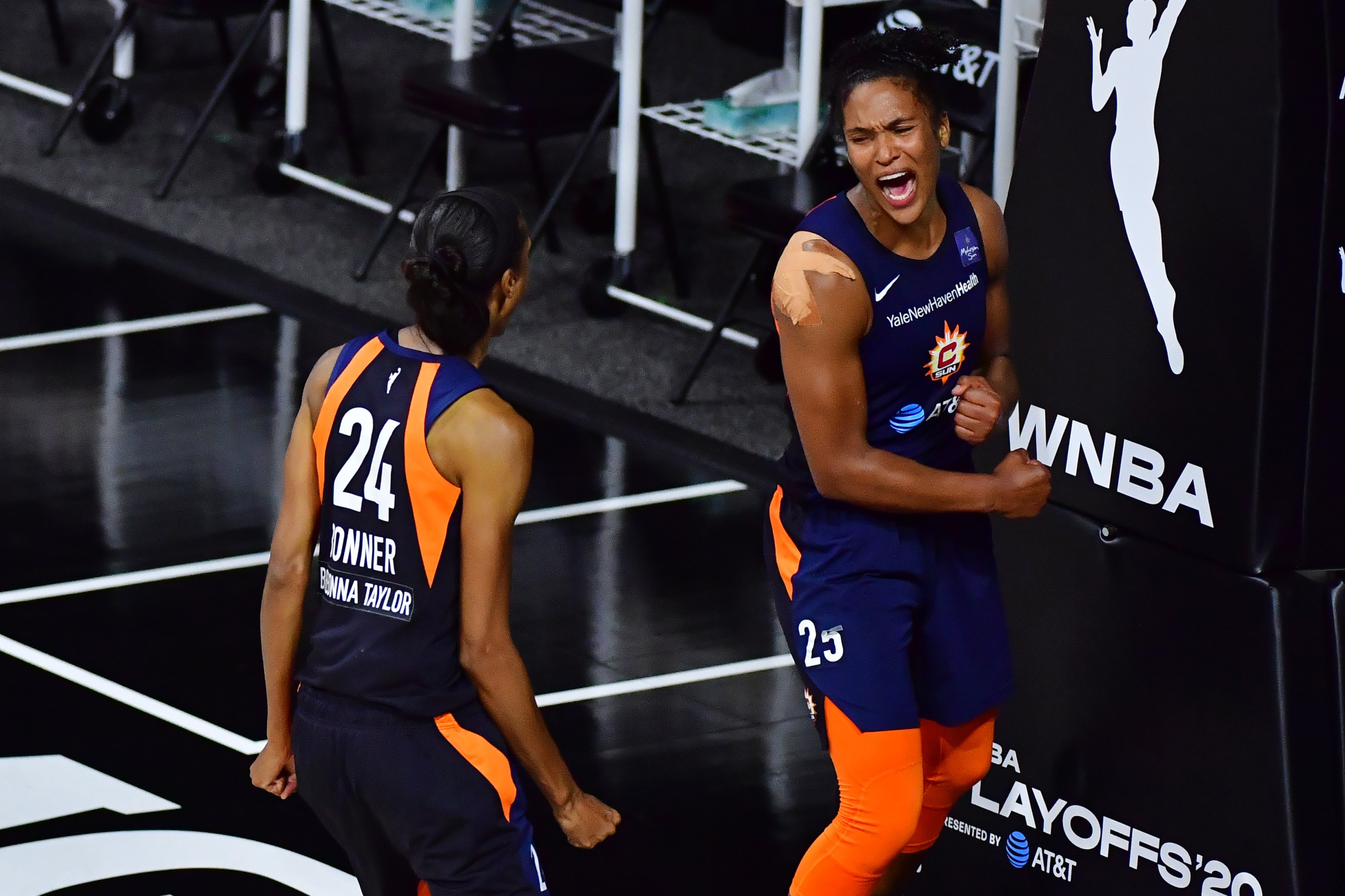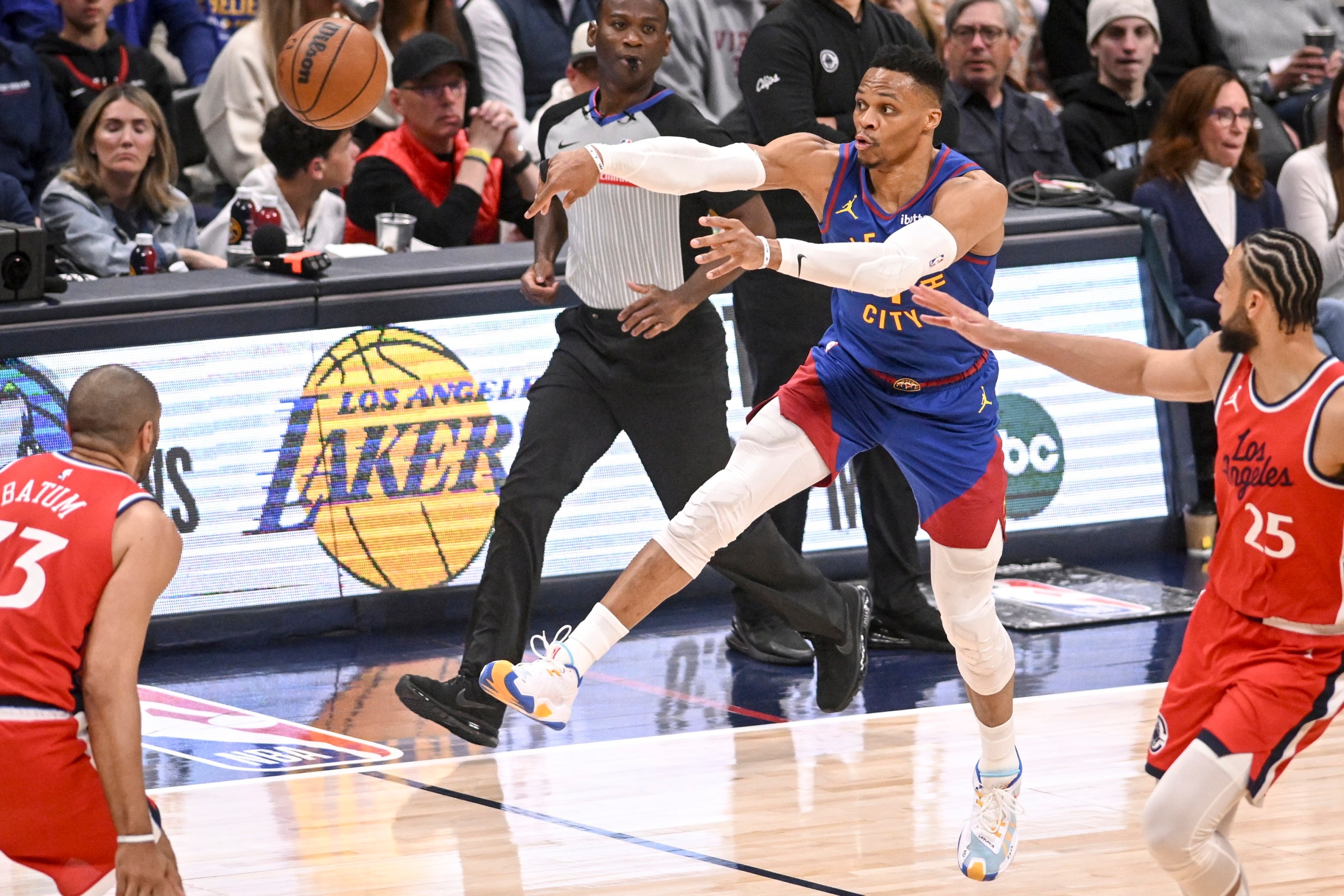Like no other athlete, Alyssa Thomas elicits vicarious pain. You wince a bit watching her play, as she has for a few years now, with a torn labrum in each shoulder. These twinges follow you even in a basketball game’s most forgettable moments. You recoil when she takes free throws in the only way she can, with a forward flick of the wrist. It hurts when she must—shudder—hold her arms vertically above her head to pull a rebound or block a shot. If she dislocates her right shoulder early in Game 2 of a semifinal series and writhes in agony before heading back to the locker room, you writhe too. You ask meekly for an ice bath over the next two days, as her status is upgraded from “out” to “questionable” to “she is there, warming up right now.”
The Connecticut Sun’s indestructible forward played all but a minute of her team’s 77-68 win over the chaotic Las Vegas Aces in Game 3 of the semifinals on Thursday night. The one-seed Aces, down 2-1 in the best-of-five series, are curiously close to a lady’s sweep at the hands of the seven-seed Sun.
Connecticut entered the bubble without its best player (Jonquel Jones, sitting out for health reasons this year) and began the season a ghastly 0-5, before smoothing out its offense enough in the midseason to earn a playoff spot. They're a team that thrives in the postseason, when bench depth doesn't matter too much, and they play a scratch-y, claw-y defense, congesting the paint and cleaning up on the defensive boards. That Vegas managed to eke out a win at all feels like something of a lucky break; the Aces have looked the worse team all series. Note that they pulled it off in Game 2, when Thomas was out.
She came back with a vengeance in Game 3, and proved that she's just about the best two-way player in the WNBA. Limited mostly to layups and right-handed floaters in the lane by the injury, Thomas muscled through defenders to score 23 points. Her defense was a small savior on what was a bad shooting night for the Sun. In the last minute, Vegas still in the game, Thomas stole an inbound pass, scored on the fast break and drew a foul. She did this all in a tremendous amount of pain.
There’s a long and plentiful history of cheating injury in women’s basketball—Candace Parker dislocated her left shoulder twice in an Elite Eight game her senior year and only made some quick locker-room pit stops before taking Tennessee to a title—but Thomas’s closest antecedent might be the obstinate knight in Monty Python and the Holy Grail, who loses both his arms in a duel and refuses to withdraw, even as blood spurts from his shoulder wounds. He’s a little offended by the idea that he wouldn’t stay in the fight.
If you ask Thomas, her shoulders are the least interesting thing about her. (TV commentators, who have repeated the labrum tidbit to the point of running joke territory, wouldn’t agree.) “I’ve been playing like this for years, so I just deal with it,” she told the Washington Post during the WNBA Finals last year. She's delayed getting surgery because of the procedure's seven-month recovery time, which would keep her from playing overseas in the offseason, where she makes the bulk of her money.
For that reason, Thomas's play elicits another type of discomfort. Gauzy sideline reporter crutches like perseverance and grit and heart play nicely on TV and they get you fired up a bit, but "needs to make a living" doesn't. As the NHL's now-deleted promo video for the Stanley Cup—a weirdly reverent montage of pucks to the body—put it, there is a "price to pay" for a championship. Hear that Thomas struggled to put a jacket on before her postgame interview or see her wrapped like porcelain at the presser and you cringe again, knowing that the price is both unpleasant and unfair.






